NASH (Non-Alcoholic SteatoHepatitis) is the form of liver disease that is triggered by what has come to be known as the “Western diet”, characterized especially by high-fat, high-sugar, and processed foods. Among the effects of a prolonged Western diet is fat accumulation in liver cells (steatosis) which is described as Non-Alcoholic Fatty Liver Disease (NAFLD) and can predispose cells to injury. NAFLD may evolve into NASH when the fatty liver begins to progress through stages of cell injury, inflammation, fibrosis, and carcinogenesis. People who develop NASH often have additional predisposing conditions such as diabetes and hypertension, but the exact biochemical events that trigger and maintain the progression are not well known. Many people in the early stages of disease do not have significant symptoms and therefore do not know that they have it. NASH becomes evident and a major concern when the liver becomes fibrotic and puts the individual at increased risk of developing cirrhosis and other complications. Individuals with advanced liver fibrosis have significantly higher risk of developing liver cancer, although cancer may also arise in some patients before significant hepatitis or fibrosis.
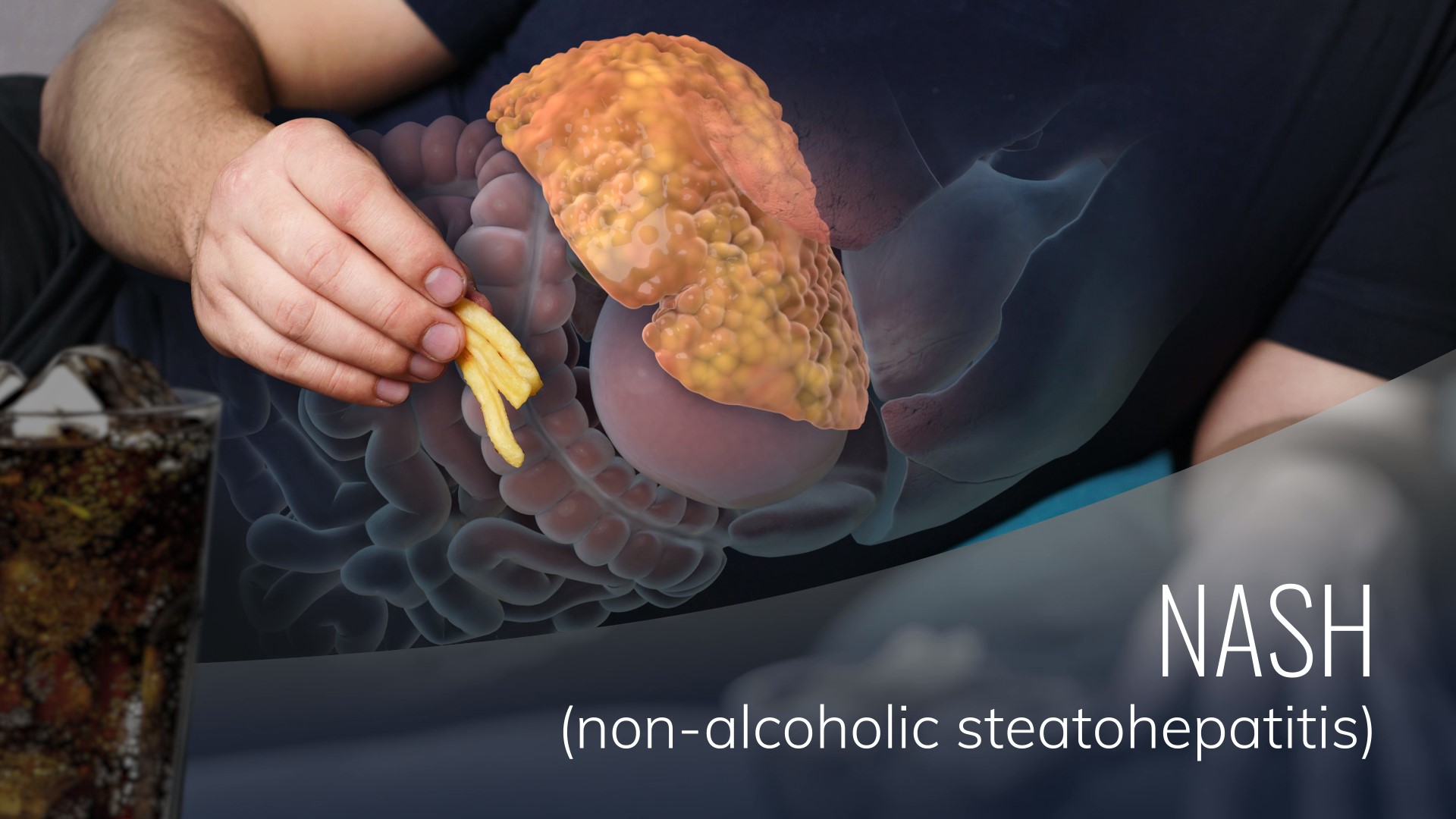
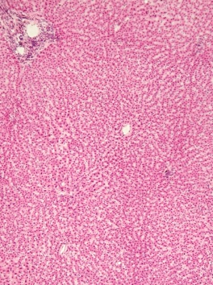
Normal liver
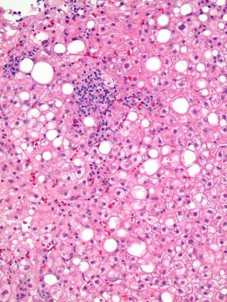
Hepatitis
Inflammatory cells invade liver
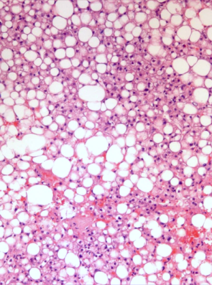
Steatosis
Abundant lipid vacuoles in cells
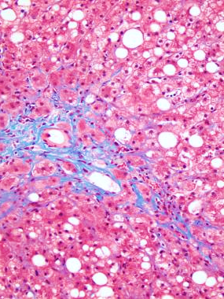
Fibrosis
Collagen deposits among cells
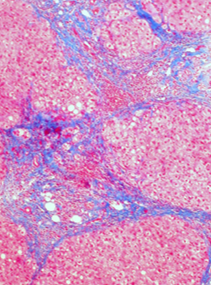
Cirrhosis
Extensive fibrosis and disrupted liver architecture
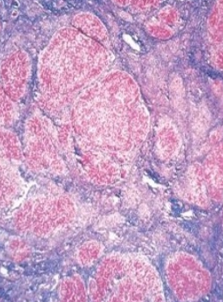
Cancer
Cancerous nodules within a fibrotic matrix
NASH is increasing worldwide at an alarming rate due to the spread of the Western diet, obesity, and other related conditions. Approximately 4-5% of the global population is estimated to have NASH, and that proportion is higher in the USA. It is predicted that NASH will become the leading reason for individuals requiring a liver transplant in the USA as early as 2020. Considering the serious outcomes linked to advancing NASH, the economic and social burden of the disease is enormous. There are no simple blood tests to diagnose or track the progression of NASH, and no drugs are approved to specifically treat the disease.
